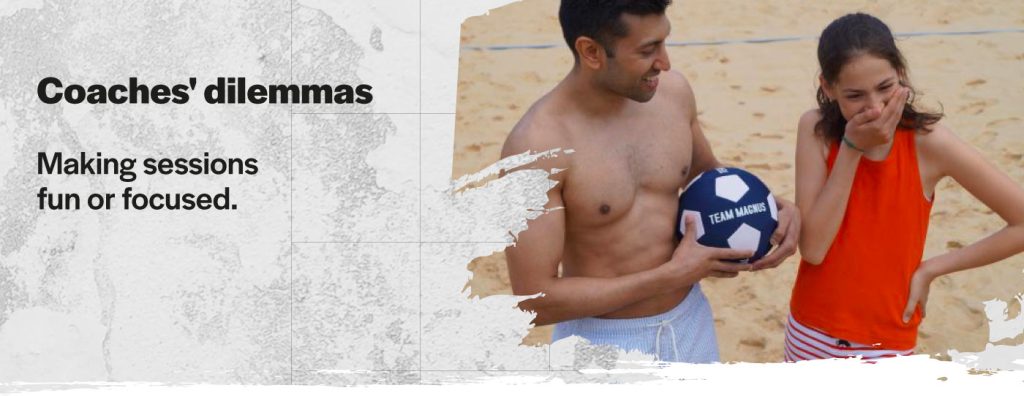Many people mix up heavy sweating and weight loss and I suspect this myth originated in combat sports.
There are strict weight categories to fall within for boxers and wrestlers. On the day of the fight, the athlete can reduce their bodyweight by sweating heavily so that they scrape into their preferred (lighter) weight class. A fast run can raise your body temperature and therefore expel loads of fluid. Potentially you can lose up to 3 kilos! That, however, is only temporary: as soon as fluids are restored by drinking the same amount of liquid everyone regains their original weight. It is an old-fashioned practice, and it can create a severe minerals and electrolytes imbalance for many hours or even days after.
What does heavy sweating say about your own training efficiency?
Myth 1 – sweating and calorie-burning
Imagine you’re playing a very fast-paced football match in Rio. The tension is high, and so is the temperature. Sweat is dripping from you and your teammates, and after 90 minutes you feel extremely tired, totally depleted. Surely you must have burnt a ton of calories… look how much you sweated! Now let’s imagine a similar scenario but this time you’re playing in Northern Canada: the temperature is now freezing and you barely broke a sweat. Does that mean you haven’t burnt as many calories?
The answer of course is no. Our body wants to maintain what is called homeostasis, or equilibrium for many of our internal processes. One of these is our body temperature, and one of the methods is our blood. It keeps you warm when necessary, and it also serves as internal coolant when you’re too warm!
As an athlete, you might be more familiar with our external cooling system. You produce sweat when your body detects a rise in skin temperature. It doesn’t directly relate to calories or energy. Think about it: You could sweat while relaxing on your sofa on a hot, humid summer’s day or sweat really little while running in the cold winter morning breeze. Of course, keep in mind that the likelihood of the temperature rising while exercising is higher, but the point is that the amount of sweat does not directly relate to the amount of energy used during the effort.*
Myth 2 – faking sweaty conditions
This brings us to a different side of this sweaty topic: hydration. There are some myths to debunk here as well.
The hoodieman: Come summer you’ll see some people training in the summer heat with a plastic waterproof jacket or long sleeves hoodie to enhance the loss of sweat, thinking that this will produce an equally enhanced loss of calories/fat. That is indeed false. As we have already seen the only outcome is a sudden and dramatic loss of fluid. Plus, if our body perceives a failure in the external cooling system, it will increase the heart rate to activate the internal one, steadily higher and higher. Unfortunately the “greenhouse effect” of the thermal jacket will not allow this negative loop to stop. As you can guess, this can only result in dehydration, dizziness, fainting… or worse. Let your skin breathe!
Myth 3 – leaving water bottle at home
Cold weather risks: at the other end of the spectrum, cold and dry environments reduce our sweating to the absolute minimum, sometimes almost unnoticeable. We might think we don’t need to drink as much. That couldn’t be farther from the truth: cold air tends to be really dry and will in turn dry out our respiratory system very quickly. That leads our body to replenish the necessary moisture in our lungs and throat rapidly, using our precious reserves of water. Hydration is always key no matter the temperature!**
References
*Brebner, D. F., Kerslake, D. M. (1969) ‘The relation between sweat rate and weight loss when sweat is dripping off the body.’ Journal of Physiology, 202, 719-735.
**Sawka, M. N., Cheuvront, S. N., Keneflick, R. W. (2016) ‘Hydration and aerobic performance: impact of environment.’ Gatorade Sport Science institute, 152.






